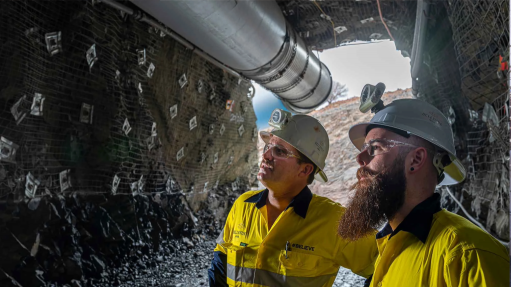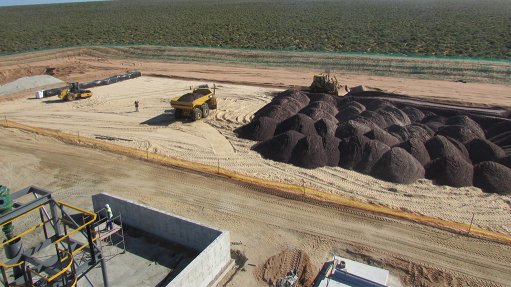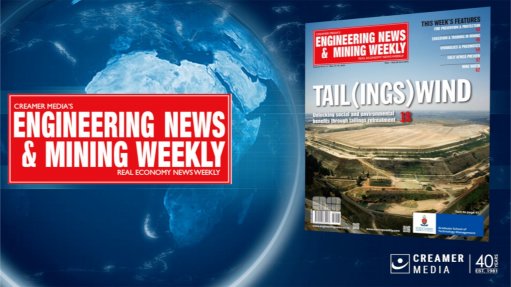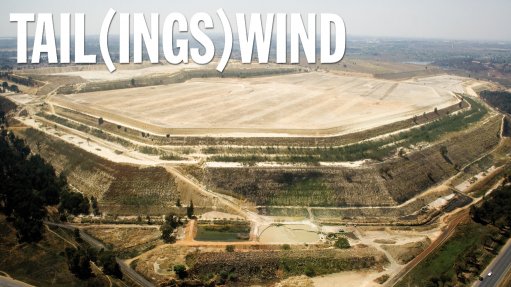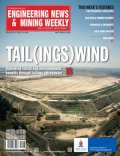MPRDA detrimental to SA’s mining industry
The ability of a listed company to raise funds on the stock exchange is crucial in the mining industry, where huge capital is required to develop projects and construct mines, asserts law firm Edward Nathan Sonnenbergs (ENS) mining director Otsile Matlou.
In light of this, Matlou warns that the Mineral and Petroleum Resources Development Act (MPRDA) Amendment Bill, published in December, could severely hamper South Africa’s capital raising capability.
“If this amendment ever became law, South Africa’s ability to raise much-needed funds for mine development and production from the capital market would essentially cease to exist. This would put an industry, already suffering from the effects of a devastating industrial action and a weak global economy, into greater difficulty,” he avers.
Matlou, who attended the 2013 Investing in African Mining Indaba at the Cape Town International Convention Centre from February 4 to 7, explains that the implementation of the MPRDA of 2002 gave the State custodianship of mineral resources on behalf of the people of South Africa.
He explains that Section 11 of the MPRDA was crafted as an anti-avoidance provision to ensure that parties do not circumvent the aims of the MPRDA through skilful commercial structuring.
Matlou adds that Section 11 was designed to tackle two types of transitions: asset transactions – which involves the transfer, letting, assignment or disposal of mining and prospecting rights or any interest in such rights – and share transactions – which involves the disposal of a controlling interest in a company which holds mining or prospecting rights.
“Parliament realised that many mining companies, including leading mining houses such as Anglo American, AngloGold Ashanti, BHP Billiton, Gold Fields, Impala Platinum and Lonmin, are listed and their shares are traded daily.
“An exception was built into Section 11, exempting changes of control of listed companies from the requirement that Mineral Resources Minister Susan Shabangu must consent to every change of control of a listed company,” he says.
However, following four years of implementing the MPRDA, 2008 saw the Department of Mineral Resources (DMR) identify certain loopholes in the wording of Section 11.
Matlou says Parliament sought to address these loopholes in the 2008 amendment by increasing the ambit of Section 11 to cover every disposal of any share or shares by a mining company.
He maintains, however, that this amendment did not address the loophole in Section 11. Rather, it seemed to increase the difficulty of commercial enterprise in the mining industry.
“Although the State’s cus- todianship of the mineral resources has been widely accepted in the mining industry, the experience of mining companies between 2004 and 2008 was that Section 11 consents took too long to be granted.
“By increasing the ambit of Section 11 to cover every disposal or acquisition of any interest or share, all that Parliament was doing in 2008 was to overburden the already stretched capacity of the DMR to process Section 11 applications,” he says, adding that the 2008 amendment has not come into force.
Matlou says the 2012 MPRDA Amendment Bill went a step further in regard to Section 11, by proposing to delete the listed company exemption. This means that each time a share of a listed mining company is traded on the stock market, either on the JSE or elsewhere, the Minister must consent.
“However, it is clear that the Minister and the DMR do not have the capacity to do so,” observes Matlou, further highlighting the impact of the proposed amendment bill on capital markets.
“Should the amendment become law, shares of listed companies will effectively cease to be tradable. Clearly, the way some companies in the mining industry are structuring transactions, to circumvent the objects of the MPRDA, is challenging for the State.
“It is, therefore, necessary to enact laws designed to deal with this. Such laws must be clear and precise. In addition, the capacity of the DMR to execute its function of regulating the mining industry must be increased,” he avers.
Comments
Press Office
Announcements
What's On
Subscribe to improve your user experience...
Option 1 (equivalent of R125 a month):
Receive a weekly copy of Creamer Media's Engineering News & Mining Weekly magazine
(print copy for those in South Africa and e-magazine for those outside of South Africa)
Receive daily email newsletters
Access to full search results
Access archive of magazine back copies
Access to Projects in Progress
Access to ONE Research Report of your choice in PDF format
Option 2 (equivalent of R375 a month):
All benefits from Option 1
PLUS
Access to Creamer Media's Research Channel Africa for ALL Research Reports, in PDF format, on various industrial and mining sectors
including Electricity; Water; Energy Transition; Hydrogen; Roads, Rail and Ports; Coal; Gold; Platinum; Battery Metals; etc.
Already a subscriber?
Forgotten your password?
Receive weekly copy of Creamer Media's Engineering News & Mining Weekly magazine (print copy for those in South Africa and e-magazine for those outside of South Africa)
➕
Recieve daily email newsletters
➕
Access to full search results
➕
Access archive of magazine back copies
➕
Access to Projects in Progress
➕
Access to ONE Research Report of your choice in PDF format
RESEARCH CHANNEL AFRICA
R4500 (equivalent of R375 a month)
SUBSCRIBEAll benefits from Option 1
➕
Access to Creamer Media's Research Channel Africa for ALL Research Reports on various industrial and mining sectors, in PDF format, including on:
Electricity
➕
Water
➕
Energy Transition
➕
Hydrogen
➕
Roads, Rail and Ports
➕
Coal
➕
Gold
➕
Platinum
➕
Battery Metals
➕
etc.
Receive all benefits from Option 1 or Option 2 delivered to numerous people at your company
➕
Multiple User names and Passwords for simultaneous log-ins
➕
Intranet integration access to all in your organisation







